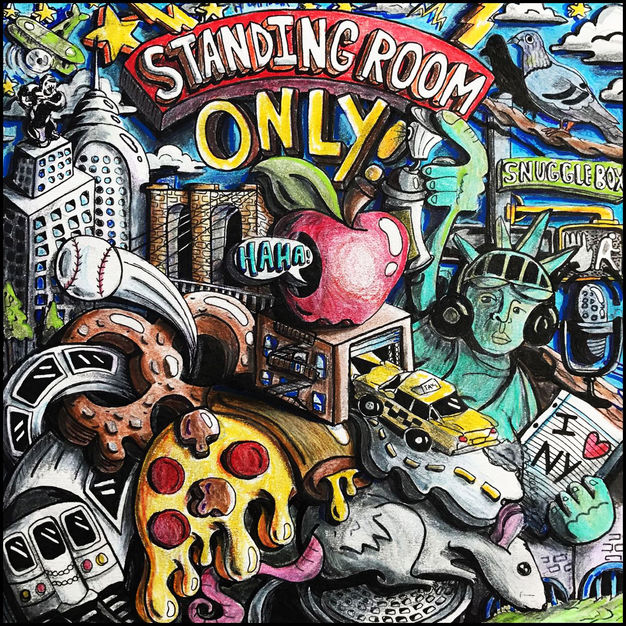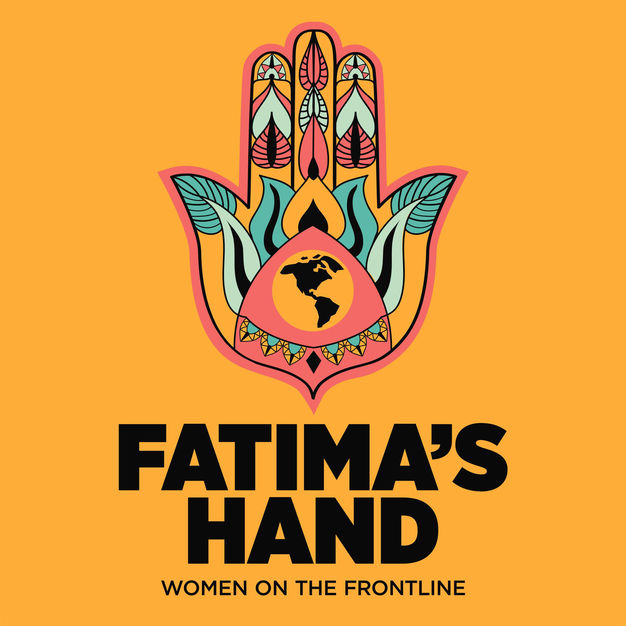
Departures with Robert Amsterdam
Amsterdam & Partners LLP
International lawyer Robert Amsterdam and other members from the Amsterdam & Partners LLP team host a wide range of special expert guests to discuss leading international political and business issues.
- 28 minutes 26 secondsA Bold New Era for Japan
On this week's episode of Departures with Robert Amsterdam we're pleased to invite our friend and colleague of many years Jakob Edberg, the co-founder of The GR Company, a government relations consultancy headquartered in Tokyo, Japan, and with offices in Osaka, Seoul, London, and Washington DC.
Jakob's unique perspective on the rapidly evolving leadership role of Japan in the region and, increasingly, in global affairs are shaped by more than 20 years of experience advising some of the world's largest companies on politically sensitive matters in the region.
According to Edberg, Japan's new role as a primary actor and top ally of the United States has been an intentional and gradual process dating back to before Shinzo Abe's ascedency and the current diplomacy-forward administration of Prime Minister Fumio Kishida.
11 May 2024, 2:12 pm - 31 minutes 28 secondsThe devastating human toll of Russia's war in Ukraine
Among the slew of books that have come out recently on the war in Ukraine, there are few which take as broad a scope of the human experience of the soldiers, victims, and communities living on the front than the latest entry written by the war correspondent Christopher Miller.
In his book, "The War Came To Us: Life and Death in Ukraine," Miller bears witness to the brutality of this remarkable, unprecedented conflict, bringing the stories of those involved with profound empathy and vivid detail - not only from pivotal scenes on the front, but also going back more than a decade to the seeds of the war, the meaning of Ukraine's struggle for nationhood, and the propulsive resilience that binds the survivors from Bucha to Bakhmut and Mariupol and beyond.
In this conversation about his book with Departures host Robert Amsterdam, the FT correspondent comments: "I think this is a war that is more black and white than any war we have experienced since the Second World War. I do think this is a war that is more 'good vs. evil' than anything we have seen in the last 80 years."
In explaining his approach to war reporting and the complexity of objectivity in the midst of violent conflict, Miller comments: "I think it is powerful enough in some cases to explain what you are witnessing. In the book, I was able to do some things that I am not able to do in my daily reporting, which is to provide some context, some personal context and analysis based on my personal experiences and knowledge. (...) I do try to separate myself from the events, but there are moments where you just can't. Sometimes you do have to help, sometimes that means carrying someone. (...) At that point you can't say, 'sorry, I am a reporter.'"
A truly outstanding book from one of the greatest young war correspondents of our current era, we hope that listeners of Departures will pick up a copy.
2 May 2024, 4:05 pm - 26 minutes 58 secondsVienna and the birth of the knowledge economy
From the late-nineteenth century until the mid-1930s, Vienna was Europe's undisputed powerhouse of ideas. But along with the exhilirating achievements of Freud, Wittgenstein, Mahler, and Klimt, there were also darker forces emerging in parallel which have had their own negative impact on modernity, from organized anti-Semitism to ethnonationalism ideologies.
These complex tensions are explored in detail in Richard Cockett's excellent new book, "Vienna: How the City of Ideas Created the Modern World." In this discussion with Robert Amsterdam, Cockett explains how the Habsburg emperor, Franz Joseph, permitted such intellectual flourishing to occur, as the rapid influx of Jews and other groups and their assimilation into the Austrian middle class via commercial and educational success augmented intellectual curiosity, discovery, and experimentation throughout the city. Viennese café and salon culture also helped to foster schools of thought, as students and professors would furiously debate disputed major questions of the day into the wee hours.
The conditions for this fervent intellectual incubation of course was not to last, and we're all aware of what followed. Cockett's thoughtful history of the city in this period highlights what we can learn about encouraging greater intellectual vitality, pluralism, and civilizational development.
1 May 2024, 9:00 am - 31 minutes 42 secondsHow the Ukrainian Left Views the War
The tremendous velocity of history that Ukraine has experienced since independence to the Maidan revolution to the catastrophic war brought on by Russia's aggression often tends to be sold and told in neatly packaged narratives to the West - a heroic tale of a plucky democracy breaking from from the yoke of an authoritarian past. But the reality, as always, is much more nuanced, complex, and messy.
This week we are pleased to feature an interview with Volodymyr Ishchenko, the author of the fascinating collection of essays, "Towards the Abyss: Ukraine from Maidan to War." Ishchenko, a sociologist based at Berlin’s Freie Universität, offers a critical examination of Ukraine's trajectory post-Maidan revolution and asks probing, intimate questions about moral leadership and the future political model that the people of this nation at war are still seeking and negotiating.
While making no excuses for Russia's brutality in the war, in this conversation with Robert Amsterdam, Ishchenko brings criticism to bear on the leadership from the left-leaning school of thought, examining the costs of ignoring history, misrepresenting identities, and other factors which have fed the growth of nationalism in Ukraine at the cost of other sectors of the society.
19 April 2024, 4:23 pm - 28 minutes 13 secondsThe Future of Taiwan's Silicon Shield
It was just three years ago when the Economist magazine ran a cover story on Taiwan, describing it as "the most dangerous place in the world." With intensifying competition with China and deteriorating global security following Russia's invasion of Ukraine, there are many arguments that continue to support that negative outlook. But that's not the vision for CY Huang, a veteran investment banker with FCC Partners and an expert in the semiconductor industry.
According to Huang, Taiwan benefits from its "Silicon Shield," the principle being that as long as the world needs Taiwan's dominant semiconductor production, Taiwan should be safe from foreign threats - though that level of security is tenuous and dependent on many other factors.
In this fascinating coversation with Robert Amsterdam, CY shares his perspective on the geopolitics of semiconductor production, how the new era of AI is driving demand for more high-end chips which can only be manufactured in certain locations, and the recent history of the island's relations with the mainland.
8 April 2024, 3:20 pm - 30 minutes 22 secondsUnderstanding the Ukraine War through the Lens of Greek Tragedy
As the war in Ukraine rages on into its second year, there remains little consensus or understanding of how the conflict could be resolved outside of military outcomes, and a persisting misunderstanding on behalf of the West regarding Ukraine's own internal preexisting social divisions.
This week we're pleased to have a special guest, Dr. Nicolai Petro, a professor of political science at the University of Rhode Island, whose new book, "The Tragedy of Ukraine: What Classical Greek Tragedy Can Teach Us About Conflict Resolution," tackles these questions with unique literary framing.
The conflict can not be understood merely on an institutional or rational level, but also must be considered in light of the emotional dimensions, Petro argues. Diving into the texts of Greek tragedies, Petro finds numerous illuminating parables from ancient Athenian society which can serve as frameworks to heal deep social trauma and create more just institutions. In this fascinating conversation with host Robert Amsterdam, Petro explores how he got the idea to approach the war from this perspective, how he responds to recent changes in Ukraine since the outbreak of war, and how the country may endeavor to secure its future.
11 March 2024, 2:35 pm - 36 minutes 6 secondsYou can't understand the Soviet system without understanding the daily lives of its people
From the Russian Revolution of 1917 to the chaotic disintegration of the Soviet Union in 1991, there is a dazzling and disorienting array of histories. While many books detail the lives and politics of Soviet leaders, Karl Schlögel invites us to better understand the experience of the country through the lives lived by more common Russians, from the depredations of communal apartments, repression, and violence, to the more prosaic aspects of Soviet life - the relics and rituals of museums, the grandeur and intensity of gigantic public works projects.
In his new book, "The Soviet Century: Archaeology of a Lost World," Schlögel, who is one of Germany's most authoritative historians on Russia, presents a history that is not comprehensive or categorical, but instead personal. In this conversation with Robert Amsterdam, Schlögel discusses his approach to such a vast period with selection of coloful vingettes, taking the reader inside the Soviety experience with extraordinary depth and detail.
2 February 2024, 1:31 pm - 31 minutes 23 secondsThe enduring legacy of the Great Arab Revolt
There is a strong argument to be made that the root of Palestinian identity can be traced back to the 1936-1939 Great Revolt, which united rival families and communities, melded urban with rural, and joined rich and poor together in a struggle against Zionism and the British Empire.
This is the starting point in Oren Kessler's exquisitely detailed new book, "Palestine 1936: The Great Revolt and the Roots of the Middle East Conflict," which takes the reader inside the earliest days of Jewish migration from Europe during the interwar period, and raises numerous questions about the key events which continue to shape the modern Middle East conflict today.
In this conversation with Robert Amsterdam, Kessler approaches the protagonists in this history with great care and empathy, and sheds light on the numerous complexities behind critical "what if" moments, from the Balfour Declaration and the White Paper of 1939. In light of the horrific October 7 attacks and the continuing conflict in Gaza, an interrogation of the historical roots of statehood in the region such as Kessler's book are a revelation and education.
25 January 2024, 2:19 pm - 28 minutes 8 secondsWhen China gave up on its peaceful rise
Formulated by PRC think tanks in the mid-1990s, China's official slogan of the "peaceful rise" sought to calm Western fears regarding its blossoming economic, military, and political power as the nation resumed an outsized role in global affairs. However the mood did not last long, as in the later years of President Hu Jintao's administration, policies hardened into a more aggressive, militaristic stance, and then was continued by the personalistic regime of President Xi Jinping, as China sought to project power abroad to boost popularity of the regime at home.
There are few people more qualified to examine this period than Susan Shirk, a professor at the University of California San Diego and the former Deputy Assistant Secretary of State in the Bureau of East Asia and Pacific Affairs. In her latest book, "Overreach: How China Derailed Its Peaceful Rise," Shirk takes apart some of the most common myths and narratives held by observers of China - namely that the "peaceful rise" was a deception instead of an intention, but this was not the case.
Shirk explores the numerous and complex domestic factors guiding of Chinese foreign policy, while rejecting the premise that all decisions stem from the personal whims of Xi Jinping and his agenda for Chinese primacy. Xi does not enjoy any sort of full control over China, Shirk argues, but sits atop a complex, competing system of institutional imperatives, such as weiquan (sovereignty rights defence) and weiwen (stability maintenance). These imperatives often produce policies at odds with Xi's preferences, and leave China with a government that shouldn't be considered a rational unitary actor.
In crafting policy responses to China's growing power and influence, Shirk warns against overreacting in ways that weaken the ability of the US to compete. In other words, stay true to the principles of a free and open market democracy.
The state behaves in ways that are not directed by and are sometime at odds with the preferences of the leader, particularly in the areas of , or, broadly, international and domestic security.
She takes a contrary view to those who would locate the source of Beijing’s behaviour purely in terms of Xi Jinping’s mission to centre China on the world stage. Instead, she notes that friction over the same issues analysts now frequently associate with Xi began much earlier than his term. These tensions have worsened under Xi, but they are not merely a product of his leadership. Nor, she argues, is Xi totally in control.
16 January 2024, 2:14 pm - 27 minutes 28 secondsThe more a Canadian academic learned about China, the less the West wanted to hear
As 2023 draws to a close, it has become increasingly clear that there are profound misunderstandings and misapprehensions running amok in Western media narratives regarding the pecularities of the current state in China. That's precisely why there should be a high level of interest in a book of personal experience, nuanced narrative, and thoughtful observation from a Canadian academic who for a time played a unique role within China's state bureaucracy.
In 2017, Daniel A. Bell was appointed dean of the School of Political Science and Public Administration at Shandong University—the first foreign dean of a political science faculty in China’s history. The story of his time in this position is enormously illuminating, highlighting both the immense challenges and also the occasional positives, and told with a certain level of humor and empathy often missing from accounts of politically sensitive jobs in the era of Xi Jinping.
His book, "The Dean of Shandong: Confessions of a Minor Bureaucrat at a Chinese University," is a riotously fun, informative, and eye-opening tour through modern Chinese academia. In his interview with Robert Amsterdam, Bell recounts how if some of his more "constructive" takes on events in China were found to be inconsistent with the predominant narrative, he encountered isolation from Westerners who preferred their current understanding.
28 December 2023, 5:44 pm - 28 minutes 45 secondsHow a decade of street protests changed the world
In June 2013, the journalist Vincent Bevins found himself covering a mass street protest in São Paulo, originally sparked by a rise in bus fares. As the tear canisters rained town and violent clashes with police began, the protesters began chanting "Love is over. Turkey is here," making a intentional connection to another uprising taking place across the world in Gezi Park in Istanbul. These parallel events, along with other major upheavals such as the Euromaidan movement in Ukraine, mark the highlights of a critical decade in modern history in which more people took place in mass protest events across the world than at any other time. And what we are left with after these disruptive, destabilizing events take place, how it reshapes the state and reconfigures political representation in the aftermath, is quite far from predictable and much less clear in terms of the public understanding of their meaning.
This is the focus of Bevins' excellent new book, "If We Burn: The Mass Protest Decade and the Missing Revolution," which ambitiously presents a history of the 2010s, globally, through the lens of popular uprisings and their discontents. Bevins, who also joined the Departures podcast in 2020 to discuss his other book, "The Jakarta Method" (more relevant now than ever, read it!), explains how he wrote If We Burn with distinct openness and neutrality, which allows readers to approach the work from many angles, and draw their own understandings of how these popular uprisings so often failed to produce the outcomes that they aspired to, and what can be learned for the future.
20 December 2023, 3:44 pm - More Episodes? Get the App
Your feedback is valuable to us. Should you encounter any bugs, glitches, lack of functionality or other problems, please email us on [email protected] or join Moon.FM Telegram Group where you can talk directly to the dev team who are happy to answer any queries.
 Standing Room Only!
Standing Room Only!
 Fatima's Hand Podcast
Fatima's Hand Podcast
 Minute in the Word
Minute in the Word